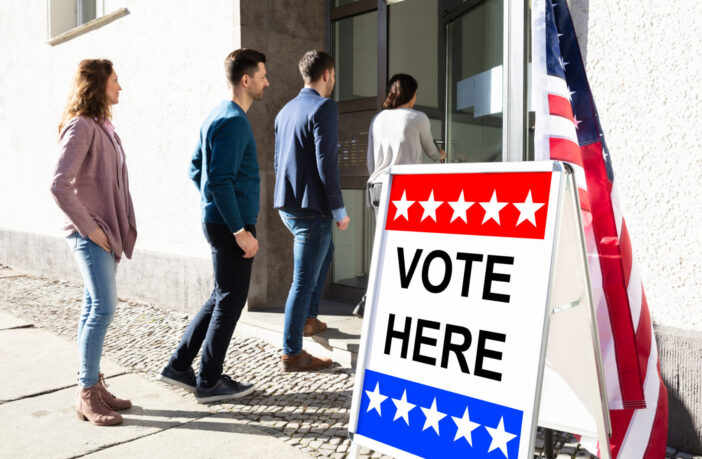Most Americans rightly oppose voting in U.S. elections by people who are not American citizens. In spite of this, a small but vociferous and radical minority continues advocating for the de facto disenfranchisement of millions of American citizens, whose ballots would be cancelled out by allowing noncitizens to vote. A recent case in point is a guest essay in The New York Times, penned by Atossa Araxia Abrahamian – senior editor at the left-wing magazine The Nation.
Ms. Abrahamian advocates for mass amnesty coupled with granting something as precious as the right to vote in U.S. elections to “people with green cards, people here on work visas, and those who arrived in the country as children and are still waiting for permanent papers,” i.e., illegal aliens who arrived in the United States before turning 18. (There have already been cases of aliens illegally voting, but the author surely sees that as a good thing.)
She asserts that “[e]xpanding the franchise in this way would give American democracy new life, restore immigrants’ trust in government and send a powerful message of inclusion to the rest of the world.” By this logic, why not allow the population of the entire world to vote in U.S. elections? After all, the U.S. is a superpower whose policies affect the entire globe, and any kinds of limitations can be seen as “exclusionary.” And what about restoring Americans’ “trust in government” before we pander to aliens?
Abrahamian claims that “it’s time for Democrats to radically expand the electorate.” And she makes it clear that “Democrats are likely to be the biggest beneficiaries of this change — at least at first,” although she adds the disclaimer that “[e]lected Republicans might be induced to appeal to a more diverse constituency.”
“The strongest case for noncitizen voting today,” she continues, “is representation: The more voters show up to the polls, the more accurately elections reflect people’s desires.” Of course, this does nothing to clarify why the “desires” of citizens, whose votes would be diluted, should be placed on the same level as those of foreign nationals – not only “green card” holders but even “people here on work visas” and illegal aliens.
The author then argues that “[t]he United States already has plenty of institutions that account for noncitizens: The census aims to reach all residents because it believes everyone, even aliens, matters.” The problem is that knowing how many people are in the country is a far cry from allowing individuals who are not American citizens to vote. Moreover, bad policies – such as counting illegal aliens towards congressional reapportionment – should not be an excuse to implement an even worse policy.
The Nation’s senior editor complains that “it’s often much harder to get a visa or green card than to then become a naturalized citizen. It took me 15 years and over $10,000 in legal fees (not to mention the cost of college) to obtain permanent residency. The citizenship test and oath feel comparatively like a piece of cake.” She adds that “[i]t shouldn’t be this onerous to emigrate.”
Every immigrant’s circumstances are admittedly different, but Ms. Abrahamian’s perspective sadly reflects much of the mass-migration lobby’s view of immigration to the U.S. as an entitlement and something that should be driven by the needs and desires of foreign nationals. In reality, U.S. immigration policy should be driven primarily by what benefits the country and, yes, its citizenry.
What it also obscures is that migration to the U.S. – both legal and illegal – is already at historically high levels, and has been so for decades. The problem is not that America is not importing enough people, or that the process is too “onerous,” but rather that the demand for it is much higher than the U.S. can reasonably accommodate.
The U.S. is a republic by and for its citizens – not the population of the entire world, and not simply anyone happening to find him or herself on its soil. Being a citizen requires a degree of civic allegiance and patriotism that transcends the mere act of residing here for a few years or even paying some taxes. Whether giving away the vote to practically any alien within our borders will make foreign nationals more attached to our nation is debatable. But what is certain is that it will greatly exacerbate the problem of foreign meddling in our elections and make government policy – which affects all Americans – dependent on the whims of those who have not even taken the oath of allegiance to our nation.





1 Comment
Pingback: New York Times Op-Ed Calls For Giving Aliens The Vote | 198 Immigration News